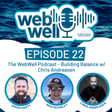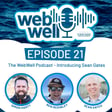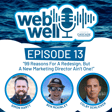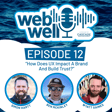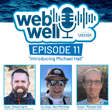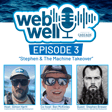
The WebWell Podcast - DNS, Caching, and CDNs... Oh my!! Joined by Stephen Brewer
In this milestone episode of the WebWell podcast, Simon Hartt and Ben McKinley welcome back their colleague and DNS expert, Stephen Brewer. Celebrating our 20th episode, we’re switching gears to deliver a concise yet comprehensive guide on DNS, aiming to demystify this crucial component of the internet.
Stephen kicks off with an introduction to key terms like caching, CDN, and DNS, using relatable analogies to break down these complex concepts. We delve into the importance of DNS for web functionality, usability, and security, discussing how it impacts everything from website performance to user experience.
Ben and Stephen share insights into Cloudflare’s role in enhancing DNS efficiency, security features, and overall reliability. We also explore the challenges and solutions related to DNS management, highlighting the benefits of using modern tools to optimize web performance.
Tune in to gain a deeper understanding of DNS and learn practical tips to manage it effectively for your websites. This episode is packed with valuable information for both tech enthusiasts and professionals alike.
We'd love to know what you think!! Please send your questions or comments to webwell@cascadewebdev.com We look forward to hearing from you!
